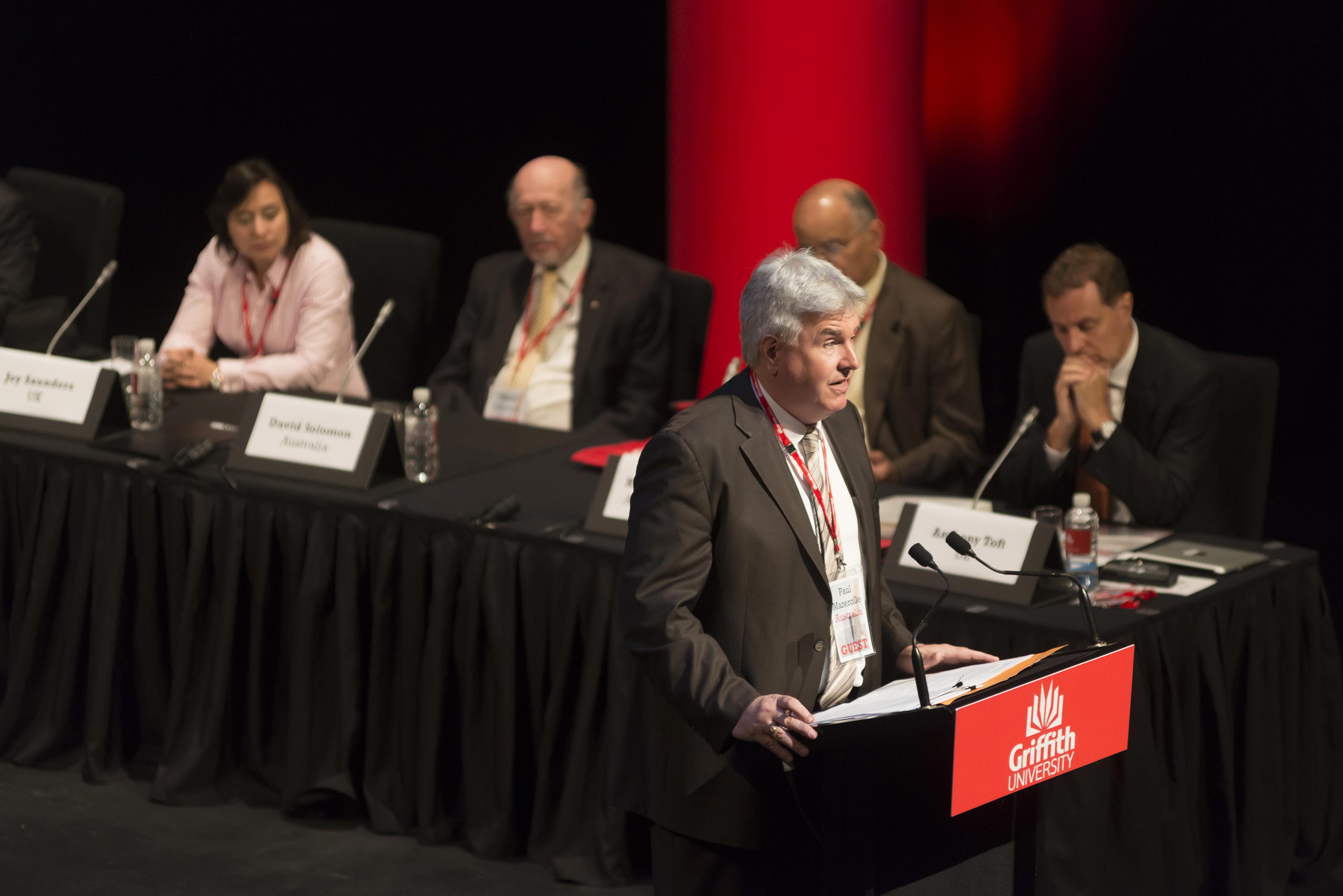
Principal speaker
Dr Stephen McLoughlin
Presented by: Dr Stephen McLoughlin, Post-Doctoral Research Fellow, Griffith Asia Institute and the Centre for Governance and Public Policy
Over the last decade, there has been a growing interest amongst scholars and policy decision-makers in the prevention of genocide and other mass atrocities. Despite this, researchers and policy decision-makers have largely overlooked problems inherent in the commonly accepted notion of prevention. Crystalized in the Carnegie Commission’s 1997 report, Preventing Deadly Conflict, prevention has typically been understood in two parts, one addressing impending cases of violence (direct prevention) and the other focusing on the underlying causes of violence (structural prevention). The concept of structural prevention is especially problematic. Using prevention in public health as a model, the report defines it as the identification and addressing of ‘root causes.’ This conceptualisation contains at least two limitations: first, there is an implicit assumption that root causes lead inevitably to violence, and second, there has been a tendency for international actors to decide, in general and global terms, what counts as root causes and how to ameliorate them, downplaying the role of local contexts and overlooking the preventive work of local and national actors.
This presentation argues that the concept of structural prevention needs broadening to incorporate not only an account of root causes, but also an understanding of the dynamic interaction between the risk that root causes pose, and locally-based mitigation factors that foster resilience. Effective long term prevention should be based – not only on identifying and ameliorating negative characteristics in countries at risk – but also on contributing to the complex management of diversity. While this makes intuitive sense – and may in fact reflect the reality of how much preventive work is done – such an approach has not hitherto been reflected in conceptual understandings of prevention adopted by the United Nations, as well as academic researchers.
Stephen is a Post-Doctoral Research Fellow at the Griffith Asia Institute and Centre for Governance and Public Policy. His research interests include mass atrocities early warning, structural prevention of mass atrocities, ethnic conflict in post-communist states, and the responsibility to protect. His current research is focused on understanding local and national sources of resilience, and how these play a protective role in states at risk of future atrocities.
- Thursday 30 May 2013
- N72, Meeting Room -1.18
- Nathan campus
- 12.30 – 1:50pm
To RSVP, please contact Natasha Vary on (07) 3735 5322 or n.vary@griffith.edu.au by 5.00pm Monday 27 May 2013.
Event categories
RSVP
RSVP on or before Monday 27 May 2013 , by email n.vary@griffith.edu.au , or by phone 37354252
Event contact details
- Natasha Vary
- http://
- (07) 3735 5322